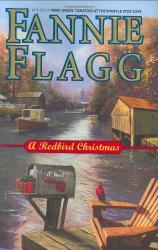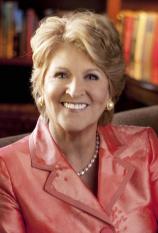Excerpt
Excerpt
A Redbird Christmas

The Windy City
It was only November sixth but Chicago had just been hit with its
second big blizzard of the season, and Mr. Oswald T. Campbell
guessed he had stepped in every ice-cold ankle-deep puddle of dirty
white slush it was possible to step in, trying to get to his
appointment. When he finally arrived, he had used up every cussword
in his rather large vocabulary of cusswords, owed in part to his
short stint in the army. He was greeted by the receptionist and
handed a clipboard.
"We received all your medical records and insurance forms, Mr.
Campbell, but Dr. Obecheck likes to have a short personal history
of his new patients, so could you please fill this out for
us?"
Oh, God, he thought, why do they always make you fill something
out? But he nodded cordially and sat down and started.
Name: Oswald T. Campbell
Address: Hotel De Soto, 1428 Lennon Avenue, Chicago, IL
Sex: Male
Age: 52
Hair: Some . . . Red
Eyes: Blue
Height: Five feet eight
Weight: 161 pounds
Marital status: Divorced
Children: No, thank God.
Closest living relative: Ex-wife, Mrs. Helen Gwinn, 1457 Hope
Street, Lake Forest, IL
Please list your complaints below:
The Cubs need a new second baseman.
There were many more questions to fill out, but he just left them
blank, signed his name, and handed it back to the girl.
Later, after his examination was over, as he sat shivering in a
freezing room wearing nothing but a backless thin gray cotton gown,
a nurse told him to get dressed; the doctor would meet him back in
his office. Not only was he chilled to the bone and sore from just
having been probed and prodded in many rude places, but now, to
make matters worse, when he tried to put his shoes and socks back
on they were still ice cold and sopping wet. He tried to wring the
excess water out of his socks and managed to drip dye all over the
floor. It was then he noticed that the dye from his socks had
stained his feet a nice dark blue. "Oh, great!" he muttered to
himself. He threw the socks in the trash basket and squished down
the hall in cold wet leather shoes.
As he sat in the office waiting, he was bored and uncomfortable.
There was nothing to read and he couldn't smoke because he had lied
to the doctor and told him he had given it up. He wiggled his toes,
trying to get them warm, and glanced around the room. Everywhere he
looked was gray. It was gray outside the office window and gray
inside the office. Would it kill them to paint the walls a
different color? The last time he had been at the VA hospital, a
woman had come in and given a talk on how colors affect the mood.
What idiot would pick gray? He hated going to doctors anyway, but
his insurance company required him to have a physical once a year
so some new bozo could tell him what he already knew. The doctor he
had just seen was at least friendly and had laughed at a few of his
jokes, but now he just wished the guy would hurry up. Most of the
doctors they sent him to were old and ready to retire or just
starting out and in need of guinea pigs to practice on. This one
was old. Seventy or more, he guessed. Maybe that's why he was
taking so long. Gray walls, gray rug, gray gown, gray doctor.
Finally, the door opened and the doctor came in with his test
results. Oswald said, "So, Doc, will I be able to run in the Boston
Marathon again this year?"
This time the doctor ignored Oswald's attempt to be humorous and
sat down at his desk, looking rather somber.
"Mr. Campbell," he said, "I'm not too happy about what I have to
tell you. I usually like to have a family member present at a time
like this. I see you have listed your ex-wife as immediate family.
Would you like to call and see if she can come in?"
Oswald suddenly stopped wiggling his toes and paid attention. "No,
that's all right. Is there a problem?"
"I'm afraid so," he said, as he opened his folder. "I've checked
and rechecked your charts and records. I even called in another
associate from down the hall, a pulmonary specialist, to consult,
but unfortunately he agreed with my diagnosis. Mr. Campbell, I'm
going to tell it to you straight. In your present condition you
won't live through another Chicago winter. You need to get out of
here to a milder climate as soon as possible, because if you don't
--- well, frankly, I'm not sure I would give you till
Christmas."
"Huh?" Oswald said, as if he were thinking it over. "Is that
right?"
"Yes, it is. I'm sorry to report that since your last checkup the
emphysema has progressed to the critical stage. Your lungs were
already badly damaged and scarred from the childhood tuberculosis.
Add all the years of heavy smoking and chronic bronchitis, and I'm
afraid all it would take is one bad cold going into another bout of
pneumonia."
"Is that right? Huh," Oswald said again. "That doesn't sound too
good."
The doctor closed his folder and leaned forward on his desk, looked
him right in the eye, and said, "No, it doesn't. In all honesty,
Mr. Campbell, considering the alarming rapidity with which this
condition has advanced, even with you going to a better climate,
the most optimistic prognosis I can give you is a year . . . maybe
two."
"You're kidding," said Oswald.
He shook his head. "No, I'm afraid not. At this stage, the
emphysema is a strain on your heart and all your other organs. It's
not just the lungs that are affected. Now, I'm not telling you this
to scare you, Mr. Campbell; I only tell you so you have time to
make the appropriate plans. Get your estate in order."
As stunned as he was at the news, Oswald almost laughed out loud at
the word estate. He had never had more than two hundred and fifty
dollars in the bank in his entire life.
The doctor continued. "Believe me, I wish the diagnosis had been
better." And the doctor meant it. He hated having to hand out bad
news. He had just met Mr. Campbell, but he had liked the personable
little guy at once. "Are you sure you don't need me to call anyone
for you?"
"No, that's all right."
"How will this news affect your future plans, Mr. Campbell?"
Oswald looked up at him. "Pretty damn adversely, I would say,
wouldn't you?"
The doctor was sympathetic. "Well, yes, of course. I just wondered
what your future plans may have been."
"I didn't have anything in particular in mind . . . but I sure as
hell hadn't planned on this."
"No, of course not."
"I knew I wasn't the picture of health, but I didn't think I was
headed for the last roundup."
"Well, as I said, you need to get out of Chicago as soon as you
can, somewhere with as little pollution as possible."
Oswald looked puzzled. "But Chicago is my home. I wouldn't know
where else to go."
"Do you have any friends living somewhere else --- Florida?
Arizona?"
"No, everybody I know is here."
"Ah . . . and I assume you are on a limited budget."
"Yeah, that's right. I just have my disability pension."
"Uh-huh. I suppose Florida might be too expensive this time of
year."
Never having been there, Oswald said, "I would imagine."
The doctor sighed and leaned back in his chair, trying to think of
some way to be of help. "Well, let's see. . . . Wait a minute,
there was a place my father used to send all his lung patients, and
as I remember the rates were pretty reasonable." He looked at
Oswald as if he knew. "What was the name of that place? It was
close to Florida. . . ." The doctor suddenly remembered something
and stood up. "You know what? I've still got all his old files in
the other room. Let me go and see if by any chance I can find that
information for you."
Oswald stared at the gray wall. Leave Chicago? He might as well
leave the planet.
It was already dark and still freezing cold when Oswald left the
office. As he rounded the corner at the Wrigley Building, the wind
from the river hit him right in the face and blew his hat off. He
turned and watched it flip over and over until it landed upside
down in the gutter and began to float like a boat on down the
block. Oh, the hell with it, he thought, until the frigid air blew
through what little hair he did have left and his ears started to
ache, so he decided to run after it. When he finally caught the hat
and put it back on his head he realized he was now wearing wet
shoes with no socks, a wet hat, and he had just missed his bus. By
the time another bus finally came, he was completely numb from the
cold plus the shock of the news he had just received. As he sat
down, his eye caught the advertisement above his seat for Marshall
Field's department store: make this the best christmas ever. start
your christmas shopping early this year. It suddenly dawned on him
that, in his case, he had better start early and it might already
be too late. According to the doctor, if he did live to see it,
this Christmas could be his last.
Excerpted from A REDBIRD CHRISTMAS © Copyright 2004 by
Fannie Flagg. Reprinted with permission by Random House, Inc. All
rights reserved.
A Redbird Christmas
- Genres: Fiction
- hardcover: 240 pages
- Publisher: Random House
- ISBN-10: 1400063043
- ISBN-13: 9781400063048




